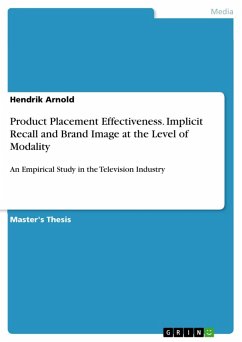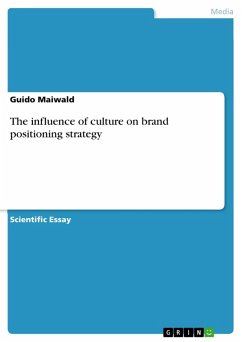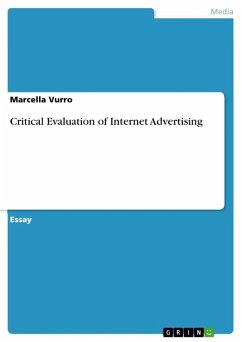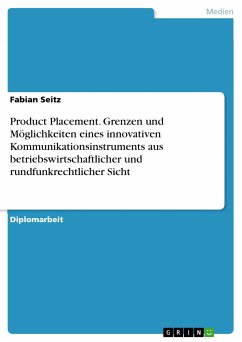Master's Thesis from the year 2013 in the subject Communications - Public Relations, Advertising, Marketing, Social Media, grade: 9.0 (out of 10), Maastricht University (School of Business and Economics), course: Strategic Marketing, language: English, abstract: Product placement effectiveness currently receives much attention regarding explicit recall, general attitude and brand attitude. However, few studies investigate the impact on implicit recall and brand image. This study tries to fill these gaps, using modality to distinguish placements. It is hypothesized that audio-only placements perform more effectively than visual-only ones and that audio-visual placements outperform both of the former in terms of both, implicit recall and brand image. Furthermore, two moderating effects are hypothesized, namely perceived congruence and prior notifications. Anderson and Bower's (1973) HAM theory as well as KPM (Friestad & Wright, 1994, 1995) and the concept of reactance (Brehm, 1981) are used to predict the respective effects. An online questionnaire is used to collect quantitative data from 257 respondents using sequences from the TV show Modern Family. The findings reveal that changing modality indeed leads to better recall and increasing brand image, which is in line with the respective hypotheses. The evaluation of the moderation effects provides mixed results of significance. Theoretical and managerial implications of the findings are discussed in detail and finally, limitations and potential avenues for future research are defined.
Dieser Download kann aus rechtlichen Gründen nur mit Rechnungsadresse in A, B, BG, CY, CZ, D, DK, EW, E, FIN, F, GR, HR, H, IRL, I, LT, L, LR, M, NL, PL, P, R, S, SLO, SK ausgeliefert werden.









